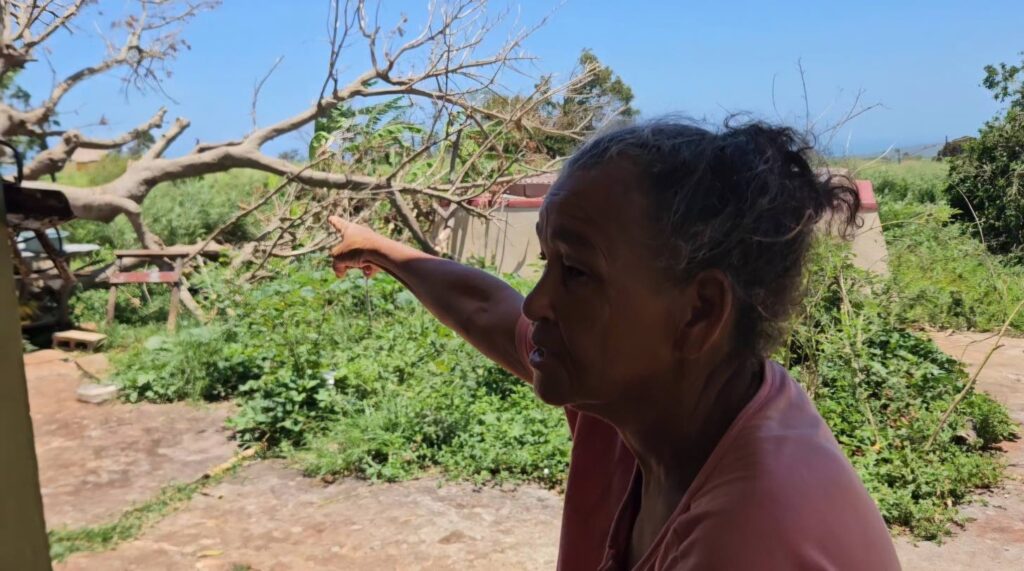Flagaman resident Edna Ebanks spoke about the mosquito problem while speaking to the Sunday Observer last week.
FLAGAMANT, St. Elizabeth — Residents anxiously waiting for electricity to be restored in parts of St. Elizabeth devastated by Hurricane Beryl two weeks ago say they can’t stand the mosquito infestations.
Edna Ebanks, a resident of Flagaman in southwest St. Elizabeth, Jamaica Observer They say they are feeling uncomfortable because the electricity has been cut off, especially since they can’t use fans to scare away mosquitoes.
“The heat and mosquitoes are killing me. At night, everyone wants a fan,” she said. Sunday Observer It happened last Wednesday while I was sitting on my balcony.
Like Ebanks, residents in southern parishes affected by Beryl are concerned about an increase in mosquito breeding sites.
“There is still no electricity or running water and mosquitoes are quickly chasing away families and children,” a resident said. WhatsApp Group message to get the attention of the Southern Regional Health Authority (SRHA).
“Mosquitoes are flying around freely. I haven’t experienced anything like this in years. I can’t stand inside my house or outside. They swarm me like bees,” the Black River resident said during the group.
The SRHA, which covers health services in Clarendon, Manchester and St Elizabeth, has since stepped up vector control activities across around 30 communities.
On Thursday, Shereen Huntley-Jones, medical entomologist at the Ministry of Health and Human Services, said Jamaicans should be prepared for an increase in breeding sites for rats, flies and mosquitoes around their homes in the aftermath of Hurricane Beryl.
“After a disaster like Hurricane Beryl, there can be an increase in mosquito, fly and rat populations for a variety of reasons. Rats live in burrows, but when those burrows flood, they take refuge inside homes. So after a flood you usually see more rats in homes, more human-rodent contact, and the accumulation of solid waste often leads to an increase in fly populations,” she said at a press conference at the Department of Health and Human Services.
Huntley-Jones urged Jamaicans to practice proper solid waste management to make living conditions less hospitable to rats and flies, noting that the rise in rat population would mainly affect parishes that were severely affected by Hurricane Beryl.
“Rats like water, they like food, they like places to live, but we can’t entertain them. [and] “By providing water and food you are entertaining them, so to get rid of them you need to make the environment unpleasant, and you can do that simply by removing their access to food,” she said.
As for the increase in mosquito breeding sites, Jones said that of the 74 species of mosquitoes present in Jamaica, there could be an increase in four to six species, including Aedes aegypti, mainly due to their close association with residential spaces.
Huntley-Jones is calling on Jamaicans to work with the government to eliminate these sites by covering water tanks and removing settled water as much as possible.
“Anywhere water accumulates and remains standing for more than seven days, mosquitoes will breed in that body of water, resulting in an increase in mosquito populations. This is what we’ve seen in many areas that will have been affected following the passage of Hurricane Beryl,” she explained.
“A solution that we have promoted for many years is the use of drum covers, which are very effective in reducing the reproduction of Aedes aegypti mosquitoes and were promoted as a solution for the Jamaican population because their main breeding site in Jamaica is 45-gallon drums,” Jones said.


